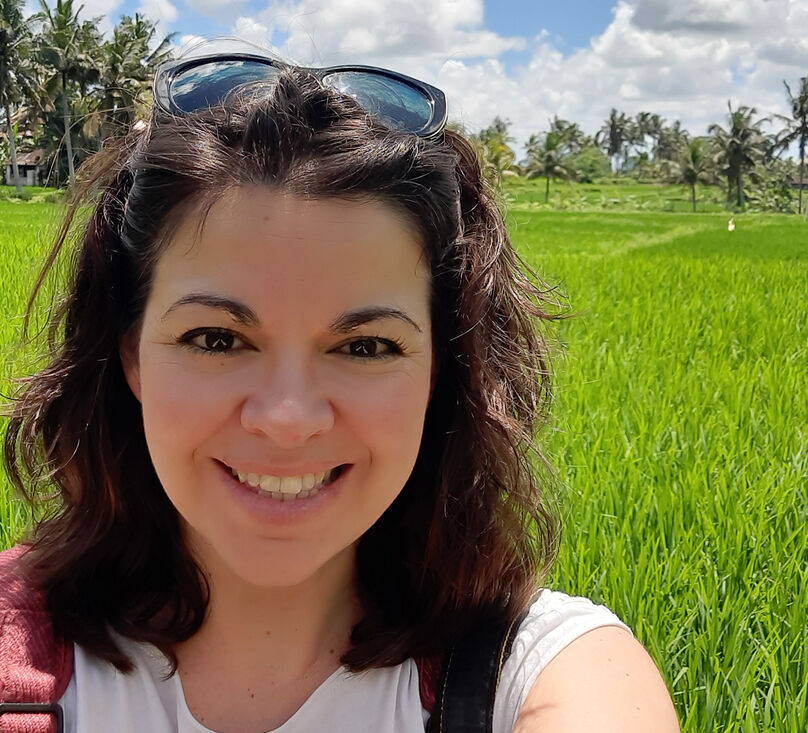Interview with Dr Lorena Tomás Laudo on the occasion of the AHEAD Congress
Dr Lorena Tomás Laudo has a degree in Chemistry from the University of Zaragoza, Spain. At the end of 2008 she completed her PhD at the University of Bath, UK. After that, she started working as editor of scientific journals at the Royal Society of Chemistry (RSC) in Cambridge. In September 2011, she moved to Tarragona to work as a science communication officer at the Institut Català d’Investigació Química (ICIQ). Later on, in January 2014, she accepted the challenge to lead the Department of Research Projects and Grants at ICIQ. During this time, she has also studied a postgraduate degree in International Cooperation and a master’s degree in Business Administration (MBA) at the Rovira i Virgili University (URV). In January 2023, Lorena joined the URV to be the Director of Research and Innovation.
Her seminar will talk about how to write effective and appealing academic grants, with tips and suggestions about how to make the best of your grant application.
Interview
Lorena, your career is strongly linked to Research Institutions: you started as a researcher, then you moved on to other research-related jobs: you have been a science communicator, a project manager and currently you are directing the Research and Innovation Unit at URV... How do you think all these jobs are important in the current academic and scientific ecosystem?
The world of research has considerably changed in the last decade. Nowadays, apart from performing excellent research, institutions are asked to perform excellent research management. Research management is a key area of research that is continuously evolving and growing in complexity. It includes scientific and financial management, communication and outreach of the results of the research, ethical aspects, open science, transfer of knowledge, etc. Researchers should focus on what they are best at: doing research. Therefore, there should be professional profiles at research institutions able to support researchers in all the other aspects of research. The role of research managers is pivotal for research institutions and the European Commission, together with the EU member states, is currently working on professionalising research management and empowering those profiles in research.
Do you think your prior experience as a researcher (chemist) has been useful to carry on your current and past jobs?
From my point of view, having been involved in research as a researcher has helped me to better understand how research works. Experiencing the day-to-day work in a laboratory, the constrains of research, research institutions and demands of funding institutions, the need of being agile and flexible to be able to respond quickly to those needs, the different mindsets of researchers and managers, etc. In my case, my prior experience as a researcher has made me more aware and empathetic in my current role.
A question we have been asking to other speakers at AHEAD is: why did you decide to pursue a career path outside of research?
After finishing my PhD I realised that I was not good enough nor passionate enough at chemistry to devote the rest of my life to it, which is key when pursuing a career in academia. However, I also realised that I really liked research and working in research-related institutions. Being a research manager allows me to work in a field I am passionate about and something I consider myself good at.
There is a component increasingly relevant in research, which is: being able to articulate (and demonstrate) the impact of your research into society. What are your views on this? Is it a relevant component of a grant application?
It is a complicated question.
I have always thought that doing research is impactful on its own. Impact is intrinsic to research, however, it is not always easy to demonstrate.
I guess it is easier when talking about applied research or technological research because it is a more ‘tangible’ field of research with the aim to develop a new technology or improve a product or a service. The impact is more visible and easier to justify.
This becomes more complicated when talking about blue-sky research or basic research when the main aim is the generation of knowledge. Creating knowledge is the main impact but it can be challenging to rationalise or quantify the impact of the ‘unknown’.
Nowadays, demonstrating the impact of a research project is key in the application process. However, different programmes have different ways of doing it and evaluating it depending on the overall aim of the programme.
For those who will not be able to attend your seminar at AHEAD, which is one of the main ‘DON’Ts’ when writing a research grant proposal?
Don’t start writing a research proposal without understanding the aim of the funding call. A great research idea cannot be funded by any research call – research programmes are rationally designed to fund research in different areas and with different objectives.
Thanks, Lorena!
We are looking forward to attending your seminar at AHEAD!

